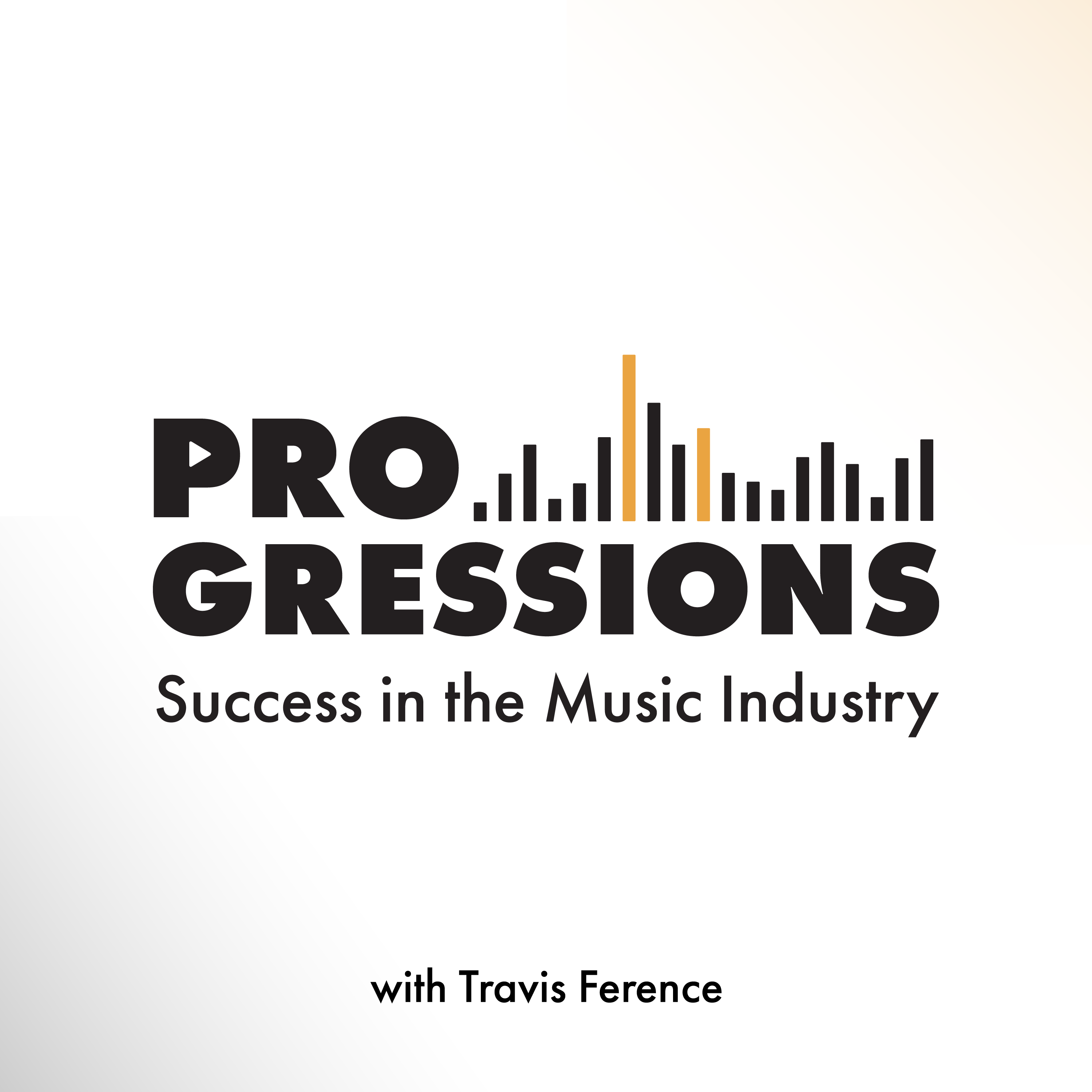Is Mastering Dead? A Pro Mixer’s Opinion
Travis discusses how the democratization of technology and an oversimplified view of the mastering process is threatening to ruin it all together.
In this episode you'll learn,
- How Technology is Rapidly Changing Mastering
- A Quick History of Mastering
- What the True Value of Mastering Is
- Should You Be Paying for Mastering
⬇️ FREE 2025 PLANNING WORKSHOP ⬇️
https://www.travisference.com/2025plan
📺 WATCH THE SHOW ON YOUTUBE 📺
https://www.youtube.com/@progressionspod
Connect with Me:
📬 Newsletter: https://www.travisference.com/subscribe
📸 Instagram: https://www.instagram.com/progressionspod
🎵TikTok: https://tiktok.com/@progressionspod
🐦 Twitter: https://twitter.com/progressionspod
🌐 Website: https://www.travisference.com/
🙏 Leave a Review or Rating 🙏
Apple: https://www.progressionspodcast.com/apple
Spotify: https://www.progressionspodcast.com/spotify
📢 Our Sponsors 📢
Listen to Secret Sonics!
Sign Up for Complete Producer Network!
Credits:
Guest: N/A
Host: Travis Ference
Editor: Travis Ference
Theme Music: inter.ference
Transcript
The music tech industry has been taking aim at mastering engineers for years.
Speaker:With tools like ozone, online, platforms like Lander, and what seems to
Speaker:be daily advancements in AI. Is the battle finally coming to an
Speaker:end? Is mastering dead?
Speaker:My name is Travis Farrants, a Grammy nominated recording engineer and mixer. And I started
Speaker:this show to help equip music professionals like yourself with the
Speaker:tools and mindsets you need to build a career in this business. Now, I might
Speaker:not be a household name like Manny or ClA, but I do make my
Speaker:living mixing records and have well over a quarter billion streams to my credit. And
Speaker:because I'm not one of those household names, and because I'm not mixing label
Speaker:projects every day, when it comes to mastering, budgets can
Speaker:vary wildly. And so my mixes are being mastered by a wide range of
Speaker:engineers. Now, I obviously have my preferences for favorite
Speaker:engineers, but I'm not always gonna be involved in the decision. And over
Speaker:the last few years, I've noticed an increasing trend in just
Speaker:plain bad mastering. If a project is not done by
Speaker:one of the top mastering houses or by one of my preferred engineers,
Speaker:then it's starting to become more likely that I just don't really like the end
Speaker:result. And it's made me start to wonder, why is mastering seem
Speaker:like it's no longer playing the role that it once did? What's
Speaker:different about now? Well, for one, technology is
Speaker:different. Like I mentioned, the tools are being democratized. But
Speaker:that's. That's not the only thing. It's also the perception of
Speaker:mastering in 2024. So if you're a musician wondering if mastering is
Speaker:necessary, or a mix engineer that feels like you just maybe want to
Speaker:start mastering your own mixes, I've got a few hot takes that I think you're
Speaker:going to want to hear. If you're a mastery engineer, you probably currently hate
Speaker:me, but you're not going to feel that way at the end. Trust me now,
Speaker:because I know there is at least one person asking, what is mastering? And I
Speaker:also think the backstory is important. To my point, here is the world's fastest
Speaker:breakdown of the history of audio mastering. If you want to skip ahead, there are
Speaker:chapter markers down below. So, up until about 1948, recording was done in
Speaker:what was called direct to disc recording. The engineer would mic the band with
Speaker:a very limited number of inputs. That band would then balance themselves while
Speaker:playing live in the room because there were no overdubs and there were very few
Speaker:microphones. The engineer would then capture that recording, cutting it
Speaker:directly to vinyl with a lathe as the band played.
Speaker:This all began to change when Ampex released the Model 200 tape machine,
Speaker:which provided the ability to record to magnetic tape, resulting in an increase in
Speaker:sonic fidelity. And now, because that tape machine would never be a
Speaker:consumer playback device, that recording eventually had to make it
Speaker:back to the medium of choice. At the time, which was vinyl, this was
Speaker:the advent of a new type of engineer called the transfer engineer, whose job
Speaker:would transform over the years to what we now think of as a mastering
Speaker:engineer. The transfer engineers would apply corrective EQ to a recording to be
Speaker:sure that the needle would not pop out of the record because of too much
Speaker:low end. They would also adjust levels to be sure that all the program material
Speaker:that needed to be fit on a side was able to do so. As
Speaker:technology progressed, so did the job of the master engine. They began to
Speaker:take a more creative role in the process, adding dynamic
Speaker:processing and additional EQ to enhance the choices already made
Speaker:by the mixing engineer. Then, when digital came on the scene in the eighties,
Speaker:the increased headroom opened the door for masters to become louder
Speaker:and louder. And anybody that has ever listened to music knows that
Speaker:louder is always better. So, with that in mind, every artist
Speaker:wanted their CD to be the loudest, most exciting CD on the
Speaker:desk of the local radio dj. This was the dawn of the loudness wars,
Speaker:which would continue into the digital and streaming era, despite the fact that
Speaker:the DSPs employ loudness normalization. So that's how we got here.
Speaker:But where is here? Here is that, unfortunately, the
Speaker:average musician's understanding of what mastering does is summed up into
Speaker:two louder, brighter. And while
Speaker:there may be a lot of truth to that statement, I think it's also the
Speaker:reason that there's a lot of lackluster mastering going around. And this is where
Speaker:technology comes into play. As I mentioned earlier, the tools of mastering are
Speaker:becoming more democratized by the day. A process that was once
Speaker:as analog as it could possibly be has become almost
Speaker:entirely digital. Even for some of the top engineers. Emulations of
Speaker:high end gear have become so good that people are selling their analog and going
Speaker:digital. And plugins like isotope ozone have gone from what a producer
Speaker:might throw on to make a rough mix to being the actual mastering
Speaker:processor for a final release. And then there's a whole new set of tools
Speaker:that I'm just going to call algorithmic tone shapers, things like golf offs, which
Speaker:are applying thousands of little EQ changes to a mix so that a frequency response
Speaker:more closely resembles some predetermined curve, for better or
Speaker:for worse. And so the increase of access to mastering grade tools,
Speaker:combined with this oversimplified assumption of what mastering is,
Speaker:I think is actually threatening to ruin mastering altogether.
Speaker:Why do I think that? I think that because we're defining
Speaker:what we will buy as mastering. We buy louder and
Speaker:we buy brighter. I can take ozone eleven, throw it on my mix bus, and
Speaker:hit master assistant, and I will get something that is for sure louder and
Speaker:for sure brighter. But will it be better? Or would I consider it
Speaker:mastered? So far? In my experience, definitely
Speaker:not. And don't get me wrong, the individual tools within ozone are
Speaker:amazing, and I use them every day. But I've yet to hit that button. And
Speaker:here's something I would consider keeping. I actually think it was more useful years ago
Speaker:when it did less. There'd always be like a couple dynamic EQ points I
Speaker:might keep. But now it sounds like an inexperienced master engineer that's
Speaker:just doing something because they think they have to. So what about the
Speaker:fully AI side of this? Before filming this video, I tossed a mix into
Speaker:lander as well as the waves online mastering platform. Both
Speaker:came back, you guessed it, louder and brighter. But
Speaker:neither came close to to the human master that had been done previously.
Speaker:Now, all three were competitively loud. All three
Speaker:were brighter than the mix was. But the human master was changed
Speaker:thoughtfully. There was vocal clarity without harshness. There
Speaker:was a glue in like a life, but there was minimal compression or
Speaker:limiting artifacts. It's clear that the human master was done in
Speaker:support of what was already there. And that's what mastering
Speaker:is about. Mastering has never been about making changes, been about making
Speaker:the right changes. A transfer engineer in 1948 did
Speaker:not EQ the low end unless they had to. That's the spirit of mastering
Speaker:that engineers have carried for the last 80 years, and that's what should
Speaker:continue to carry for the next 80. Every step of the record making
Speaker:process has always been, or should always be about honoring the
Speaker:previous steps, taking the vision of everybody that touched
Speaker:a project before you, and supporting it. And that's why this
Speaker:technology driven era of matching a specific EQ
Speaker:curve or doing something for the sake of doing something, is, in my
Speaker:opinion, hurting mastering as a whole. So to answer the question is
Speaker:mastering dead? Do you still need to pay for mastering? The answer
Speaker:is simple. If you are price shopping for the most economical
Speaker:way to make something louder and brighter, then to you,
Speaker:mastering is kind of dead. You can easily use a one click
Speaker:mastering plugin or any AI platform, and likely be
Speaker:satisfied. But if you're looking for one last collaborator,
Speaker:if you are willing to search for a mastering engineer that fits your sonic
Speaker:tastes and wants to support your vision, then to you, mastering
Speaker:is very much still alive and very much worth it. The
Speaker:more technology improves and continues to democratize, the more important
Speaker:each person's individual sonic taste is going to become. You'll be able to get
Speaker:a technically great mix or a master from plenty of people, or maybe
Speaker:even plenty of machines. But what is the X Factor that
Speaker:makes a collaboration really click? That's what you should be looking for in a
Speaker:mastering engineer, or for anybody that's going to work on your project.
Speaker:Because the reality is, what's happening in mastering at the moment is going to
Speaker:happen in every aspect of the music industry. The advancement of
Speaker:tools is going to even the playing field pretty much
Speaker:everywhere. The thing that will separate you from others in the industry is
Speaker:no longer going to be your specific skills. It's going to be your taste
Speaker:and your sonic identity. That's what we're ultimately going
Speaker:to all get hired for. And when you do get hired, if you feel like
Speaker:you're struggling to figure out what the best rate to charge for your services is,
Speaker:then you'll probably want to check out this video next.


